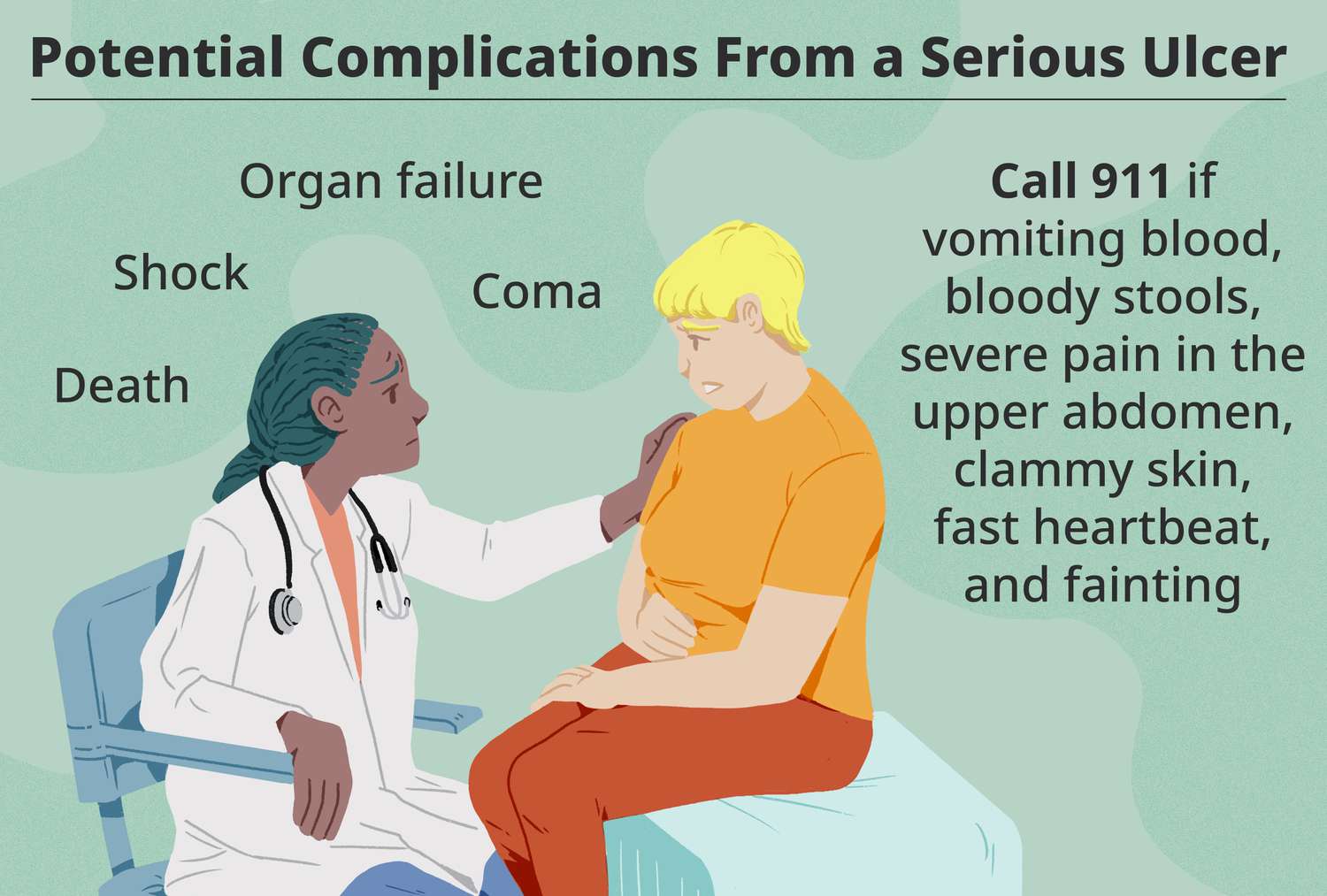
Ulcers can lead to serious health issues if left untreated. While they may start as manageable discomfort, the complications that can arise from untreated ulcers can pose significant risks. This blog will explore potential complications, symptoms to watch for, the importance of prompt treatment, and long-term management strategies.
Potential Complications from Untreated Ulcers
1. Bleeding
One of the most common complications of peptic ulcers is bleeding, which can occur when the ulcer erodes into a blood vessel. This may lead to:
- Upper Gastrointestinal Bleeding: Blood can appear in vomit (which may look like coffee grounds) or in stools (which may appear black and tarry).
- Anemia: Chronic blood loss can result in anemia, characterized by fatigue, weakness, and pallor due to decreased red blood cell counts.
2. Perforation
Perforation is a serious condition where the ulcer creates a hole in the wall of the stomach or small intestine. This can lead to:
- Peritonitis: Bacteria can enter the abdominal cavity, causing a severe infection known as peritonitis, which can be life-threatening.
- Symptoms of Perforation: Sudden, severe abdominal pain, rigid abdomen, nausea, vomiting, and fever may indicate perforation and require immediate medical attention.
3. Gastric Outlet Obstruction
Ulcers can also lead to narrowing of the digestive tract, preventing food from passing through. This can cause:
- Symptoms of Obstruction: Vomiting, especially of undigested food, and severe abdominal pain, especially after meals.
Symptoms of Complications to Watch For
Recognizing the symptoms of complications is crucial for seeking timely medical care. Be vigilant for:
- Severe Abdominal Pain: Sudden and intense pain, especially if it feels different from your usual ulcer pain.
- Signs of Bleeding: Look for blood in vomit, black or tarry stools, or any signs of weakness or dizziness that may indicate significant blood loss.
- Nausea and Vomiting: Persistent nausea or vomiting, especially if accompanied by abdominal pain, can indicate complications.
- Swelling and Tenderness: A swollen or tender abdomen may suggest an underlying issue, such as perforation or obstruction.
Importance of Prompt Treatment
Timely medical intervention can make a significant difference in the outcome of ulcer complications:
- Preventing Severe Outcomes: Early diagnosis and treatment can prevent minor complications from escalating into more severe, life-threatening conditions.
- Reducing Hospitalization: Prompt treatment often reduces the need for surgical interventions and shortens hospital stays, improving recovery times.
- Managing Symptoms Effectively: Immediate care can help alleviate distressing symptoms and improve the quality of life.
Long-Term Management Strategies
After experiencing an ulcer or its complications, long-term management becomes essential to prevent recurrence and maintain digestive health:
- Follow-Up Care: Regular visits to your healthcare provider for monitoring and management are crucial. They can help adjust treatment plans as necessary and address any emerging symptoms.
- Medications: If prescribed, continue taking medications such as proton pump inhibitors (PPIs) or H2 blockers to manage stomach acid levels and promote healing.
- Lifestyle Modifications: Adopting a healthy lifestyle, including a balanced diet, regular exercise, and stress management, can significantly reduce the risk of developing new ulcers.
- Avoid Irritants: Steer clear of smoking, excessive alcohol consumption, and over-the-counter NSAIDs, as these can aggravate the stomach lining and increase ulcer risk.
- Educate Yourself: Understanding your condition and its management empowers you to make informed choices about your health. Engage with educational resources or support groups to learn more about living with ulcers.
Conclusion
Ulcer complications, such as bleeding, perforation, and gastric outlet obstruction, can pose significant health risks if not addressed promptly. Being aware of the symptoms of complications and understanding the importance of prompt treatment can save lives. Long-term management strategies, including follow-up care and lifestyle modifications, are essential for preventing recurrence and maintaining overall digestive health. If you experience any concerning symptoms, do not hesitate to seek medical attention, as early intervention is key to effective management and recovery.

